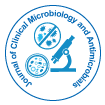

Mohammed Bourhia
Bryonia dioica (B. dioica) belongs to the Cucurbitaceae family. It is widely used in folk medicine for disease treatment. The current work was conducted to investigating the phytochemical composition, total polyphenolic and flavonoids contents, antioxidant activity, antiproliferative effect and acute toxicity of methanolic extract of B. dioica roots. The phytochemical composition of B. dioica roots was performed using GC-MS. Antioxidant activity was evaluated using DPPH assay. Antiproliferative effect against human cancer cell lines (T-24, HT-29, and HepG-2) was studied using WST-1 assay, and the acute toxicity was assessed with oral administration to mice. The phytochemical composition of the studied plant roots showed the presence of interesting phytoconstituents. The extract showed an important rate of total polyphenolic and flavonoid contents 430.643 ± 23.578 mg GAE/g, 7.216 ± 0.329 mg QE/g respectively. The studied extract possessed an important DPPH activity with an IC50 value estimated at 0.975 ± 0.064 mg/mL. The plant extract also demonstrated promising antiproliferative activity against T-24, HT-29, and Hep G-2, with an IC50 of 14±3μg/mL, 48 ± 4μg/mL, and 18 ±2μg/ml respectively. Regarding acute toxicity results, the percentage of mortality extended to 100%. The current finding reported that the B. dioica roots possess interesting phytoconstituents consolidating free radical scavenging activities and antiproliferative effects without ignoring their toxic effect